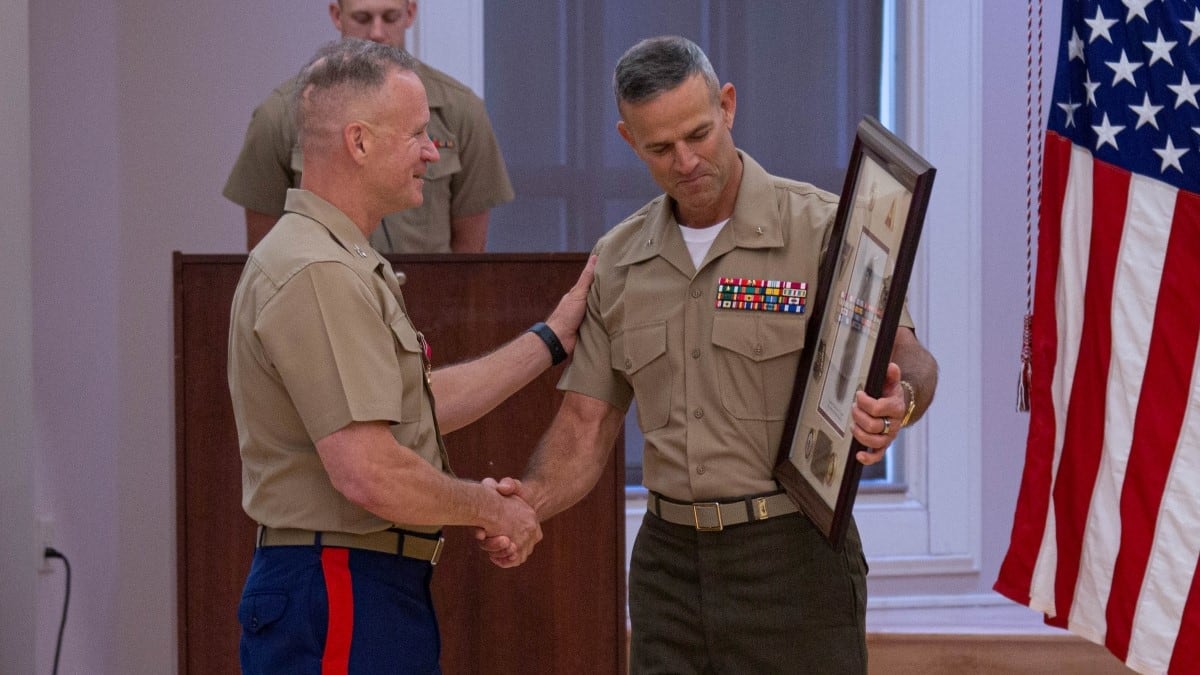Marines who wish to retire from the Marine Corps now have to let the service know at least six months before their planned retirement dates, up from four months.
The change, announced in a Marine administrative message Friday, comes as the Corps is overhauling its approach to retaining Marines, in an initiative called Talent Management. The service has tried to keep more experienced Marines in its ranks by offering incentives, financial and otherwise, and by making it easier to reenlist for second or third terms.
But the Talent Management initiative also has implications for Marines who are nearing the end of their time in uniform.
RELATED

“One of the elements of Talent Management is predictability, and to facilitate it for assignments and related actions,” the administrative message reads.
Effective immediately, Marines must submit their requests for retirement not more than 18 months and not less than six months before the day they would like to retire. Previously, they had to submit their requests not more than 14 months and not less than four months out, according to the separation and retirement manual.
The new time limits also apply to Marines who resign from the Corps.
The Corps’ Manpower and Reserve Affairs division reviewed the previous four-to-14-month window and found it didn’t give Marines enough time to plan for a smooth transition from the ranks, Marine spokeswoman Capt. Sarah Eason said via email to Marine Corps Times on Friday.
“A model that requires a 6-month to 18-month lead time ensures a Marine has sufficient time to complete all requirements associated with transition, while also allowing the service to more effectively forecast the availability of manpower capacity to meet service requirements,” Eason said.
Before Marines leave the service, they need to complete the Transition Readiness Seminar, Permissive Temporary Additional Duty, a final physical, unit checkout requirements, terminal leave and more, Eason noted.
The Corps’ director of manpower management may approve a retirement or resignation request for a date other than the one a Marine has requested “based on the needs of the service, service limitations, or the laws and policies related to retirements/resignations,” according to the Marine administrative message.
Enlisted Marines and officers alike are eligible to become retirees — who receive pensions, along with a host of other benefits — after 20 years’ active duty service. Enlisted Marine retirees with less than 30 years of service technically get transferred to the Fleet Reserve, where it is possible they could be ordered back to active duty.
The tweak to the retirement process isn’t the only policy pertaining to soon-to-be-veterans that the Corps’ Manpower and Reserve Affairs division has recently reassessed.
In October, the Corps released a document announcing cuts to the time that Marines could spend training at civilian workplaces before leaving active duty. Service members in that transition program, called SkillBridge, spend the final months of their active duty commitments at jobs in the civilian sector rather than at their military jobs.
The Marine Corps later pulled the “premature” document from its website, and the cuts to SkillBridge didn’t actually go into effect, Marine spokeswoman Maj. Danielle Phillips said in November. But Phillips acknowledged the Marine Corps was evaluating its SkillBridge policy “to ensure we balance the needs of the individual Marine with Congressional intent and a mission-capable Marine Corps.”
Irene Loewenson is a staff reporter for Marine Corps Times. She joined Military Times as an editorial fellow in August 2022. She is a graduate of Williams College, where she was the editor-in-chief of the student newspaper.





